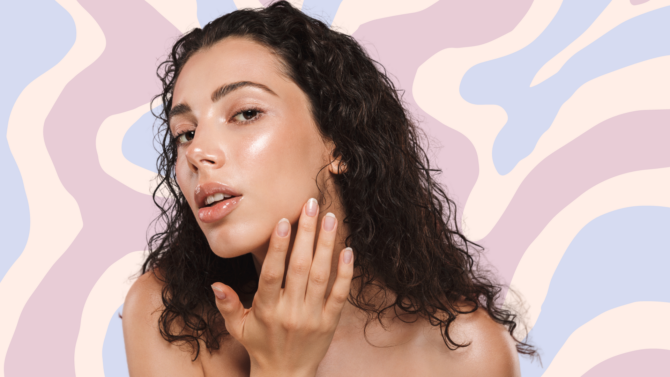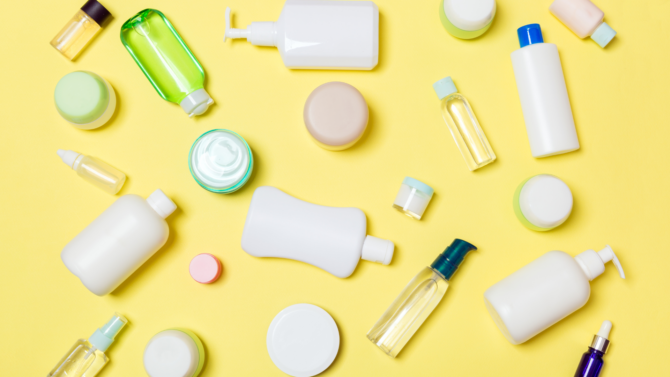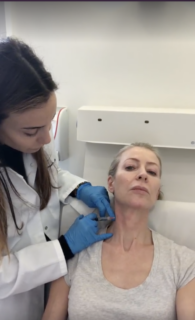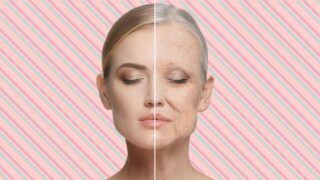Adopting a proper skincare routine when you haven’t had one before can be daunting – there are so many different products, ‘advice’ – some of which you’d be better off ignoring – and marketing to wade through, and it can be overwhelming. But it doesn’t have to be! Follow these top tips from four of our trusted practitioners to set you on the right path.
1. Identify your skin type and concerns
‘First, what’s your skin type?’, says aesthetician Dija Ayodele. ‘Are you oily, combination, dry, sensitive? And what are your skin concerns? These could be rosacea, acne, skin laxity… these are two things you need to be able to identify to know which ingredients are best for those concerns. For example, if you’re oily you want to be looking at including some salicylic acid somewhere in your routine, if you’re dry, you want to be considering hyaluronic acid, if it’s early signs of ageing that are bothering you, you want to be looking at retionoids, or if you’ve got hyperpigmentation you’d need a tyrosinase inhibitor, and so on.’
2. You don’t have to spend a fortune
‘Consistency is more important than spending fortunes,’ says Dr Ayah Siddiqi. ‘If you used a basic, cheap cleanser, moisturiser, and SPF daily for a year, the results would far outweigh spending hundreds on fancy serums but using them just twice a week and completely forgetting about skincare the rest of the time. Better quality formulas will always yield superior results, but not when they’re used inconsistently.’ Sunscreen is non-negotiable
3. SPF is non-negotiable
Every skin expert would agree that nothing is more important than SPF in any skincare routine. ‘Use a high factor sun screen each day, says Miss Jennifer O’Neill. ‘This is important even if it’s not sunny or you are inside, because some UV travels through glass and clouds – especially UVA as it has a longer wavelength.’
4. Every skin if different
‘It is important to understand that your skin is as unique as you are, and what suits one person is not necessarily suitable for the next,’ advises Kelly Harris, an independent nurse prescriber. ‘However, there are a few core steps that pretty much everyone can commit to; cleansing in the morning and evening, using a gentle exfoliator and SPF every single day.’
5. The 70/30 rule
‘70% of your skincare routine should be hydration, 30% should be treatment,’ says Dr Siddiqi, ‘especially if you have problematic skin – acne skin is usually the most dehydrated, and most lines we see in clinic are actually signs of dehydration.’
The Tweakments Guide Takeaway
Starting a skincare routine doesn't have to be a minefield. Follow this simple, sensible advice to help you build an effective routine that works for you.
Join Our Mailing List
This is the best way to stay in the loop with our latest news and updates, including industry titbits and tailored offers.
Related Stories

Skincare
How To Avoid ‘Festive Face’: Your Skin Survival Plan For Party Season
Festive food indulgences, lots of late nights, and a glass (or two) of champagne – the winter party...

Concerns
Can ‘NoTox’ Skincare Ever Measure Up To Toxin Injections?
For anyone looking for an alternative to wrinkle-relaxing toxin injections, ‘NoTox’ skincare,...

Skincare
Do You Need To Change Your Skincare Every Season?
As a beauty and aesthetics journalist with specific training in cosmetic science, I get asked a lot of...

Skincare
Post-Tweakment Skincare: The Expert Guide
After the excitement of having a tweakment, it can be tempting to sit back and just wait for your results to...







 The Tweakments Chatbot
The Tweakments Chatbot